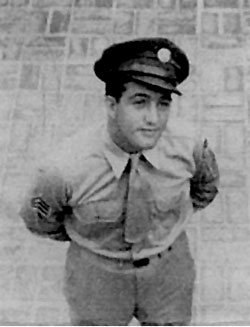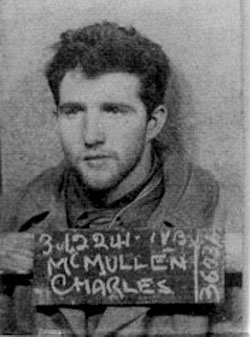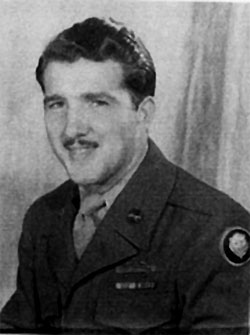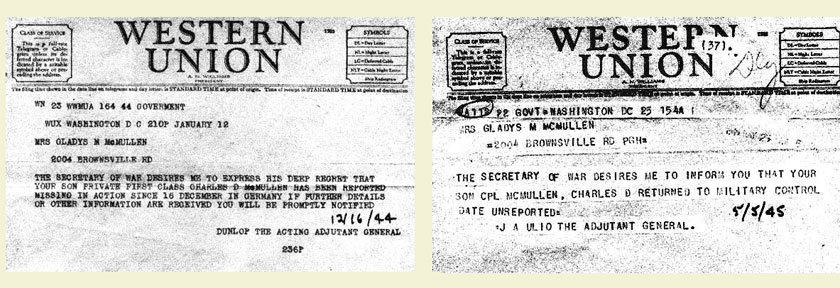
Established April 14, 1942
 |
American Ex-Prisoners of War
A not-for-profit, Congressionally-chartered veterans’ service organization advocating for former prisoners of war and their families.
Established April 14, 1942 |

 Charles McMullen April 1944
|
 Charles McMullen December 1944
|
 Charles McMullen December 1945
|
| Last Name | First Name, Middle Init. | Nickname |
| Spouse | City | State, Zip |
| Conflict — Theatre | Branch of Service | Unit: |
| Military Job | Date Captured | Where Captured |
| Age at Capture | Time Interned | Camps |
| Date Liberated | Medals Received | |
| After the War ... | ||
I arrived in France on December 1, 1944. We went to a front line position. I was captured five days after that. we were a young division, with an average age of 22, no experience and deployed over an area four times the normal area in a supposedly quiet sector.
Several thousand others and I were captured near St. Vith on Dec. 19 late in the afternoon in the village of Bleialf. We slept in a churchyard that night, and the next day we were walked to Gerolstein in zero degree weather in 8 - 10 inches of snow. During the march my feet became initially frozen.
Subsequently we were loaded into boxcars, and in extreme cold with no heat we were taken to Limburg. All of this is chronicled in the PBS documentary "Berga Soldiers of Another War." We remained in the boxcars, 60 men to a car, and were taken to Mulhburg (Stalag VB) where we were interrogated, picture taken, deloused and then put back into the boxcars.
At this point groups were formed and sent in different direction depending primarily on rank. I remained in the boxcars for eight days, and we had a total of one loaf of bread and 8 ounces of cheese per man to eat for the entire trip. We arrived in Furstenburg (Stalag-IIIB) on January 7. The next three weeks were the first and only time I slept in a barracks during my entire capture.
On January 31 we started a forced walk to Luckenwalde (Stalag- IIIA). We arrived at Luckenwalde on February 7 and found no barracks. So they put us in carnival-type tents, 700 men to a tent, with two waters faucets for 2,800 men. We slept on the wet, cold ground.
Here I stayed until on May 3, 1945, when I took off to find Americans. I wandered through Russian- held Germany and found them three days later at Wittenberg and for me "the war was over."
Through all this, the Germans and I both considered me a P.O.W. But the US Army and my family had me as M.I.A. From December 19, 1944 to May 5, 1945, I never received a letter or a package overseas; the one POW letter I wrote (in Feb. 1945) got delivered in March 1946, after I was home.
